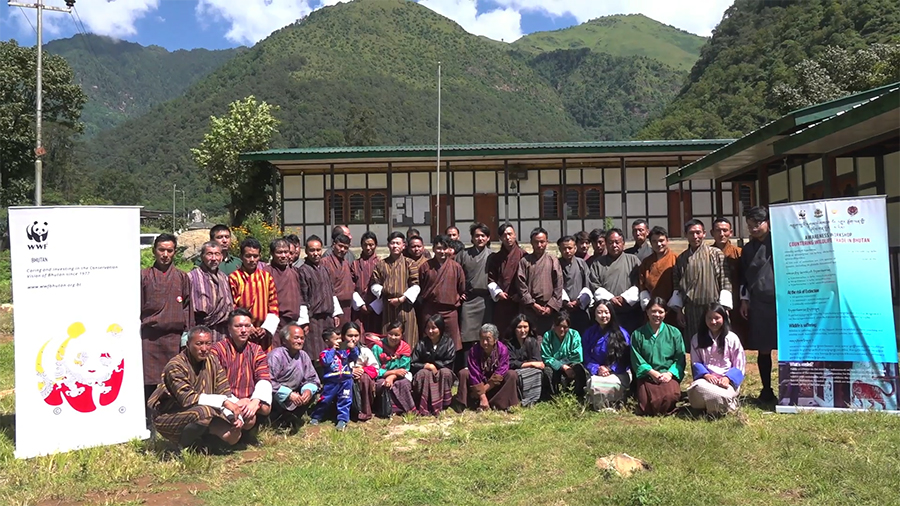
Rural communities are essential allies in the fight against illegal wildlife trade through their stewardship of natural resources and involvement in sustainable conservation efforts. In an effort to bring communities together to combat illegal wildlife trade and reduce poaching, the WWF Bhutan held its first community awareness workshop in Wangdue Phodrang’s Kazhi Gewog on Saturday. The Department of Forests and Park Services and the Jigme Singye Wangchuck School of Law offered technical support for the workshop.
More than 40 participants from three highland communities of Kazhi Gewog were briefed about the new Forest and Nature Conservation Act 2023 and other related rules and regulations.
Penalties for poaching and other forest-related offences were introduced to the gathering.
According to WWF Bhutan, poaching and trafficking of illegal wildlife products are on the rise in Asia and Bhutan is used as a transit route for trafficking these products.
According to the Forest and Nature Conservation Act 2023, the offence of killing wildlife species listed under Schedule I of the Act is a third-degree felony, which has a prison term of five to nine years.
Wild animals like musk deer, snow leopard, tiger, and takin, which are all endangered species, fall under Schedule I of the act.
“The increase in poaching activities over the past year compared to the previous decades is increasing forever. So, for today’s programme, we are mainly focusing on community engagement,” said Chimi Wangchuk, the project manager of WWF Bhutan.
According to officials at the workshop, Wangdue Phodrang has the highest record of poaching and illegal fishing.
Since 2017, eight tigers, 25 Himalayan black bears, and 10 musk deer were lost to poachers in the country.
“This workshop will benefit our people a lot. Most participants are youth and understand Buddhism. So, I am expecting that through this workshop people will change,” said Gyeltshen, Baedro Tshogpa.
“I have clearly understood about conservation of wildlife. I also understood about the conservation of natural resources like stone and trees. There are stringent laws if we kill tigers and other wild animals,” said Chencho Dorji, a villager.
Meanwhile, participants say protected species like the musk deer have not been seen in their area recently.
“I do not know if the musk deer is in the wild anymore. We cannot see it anymore. We used to spot musk deer before,” said Gyeltshen, Baedro Tshogpa.
Villagers say, compensation for domestic animals lost to wildlife predators would help reduce poaching activities in their area.
“We would be grateful if the government would allow us to collect medicinal plants by charging some royalty. Government can generate some revenue and the people can too. These plants would otherwise rot in the same year and will not be useful the next year,” said Phub Tashi, a villager.
However, according to officials from the forests and park services department, the Gewog has not proposed a plan to harvest and manage medicinal plants in their gewog.
According to Gewog officials, so far, no formal proposals have been made, but the Gewog now plans to put in a proposal to the concerned agency hereafter.
Changa Dorji, Wangdue Phodrang
Edited by Sherub Dorji










